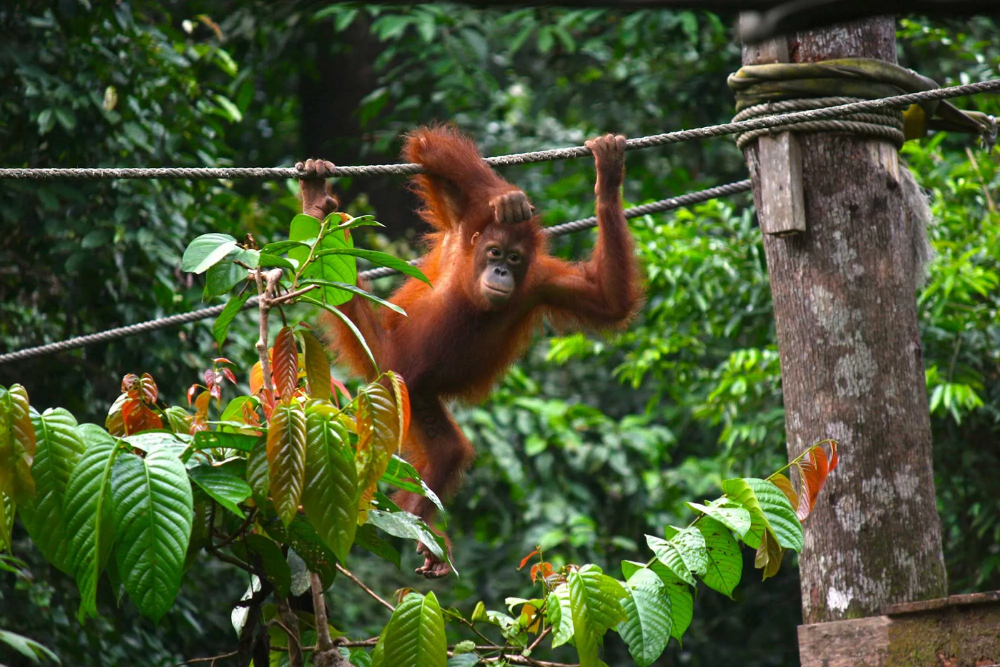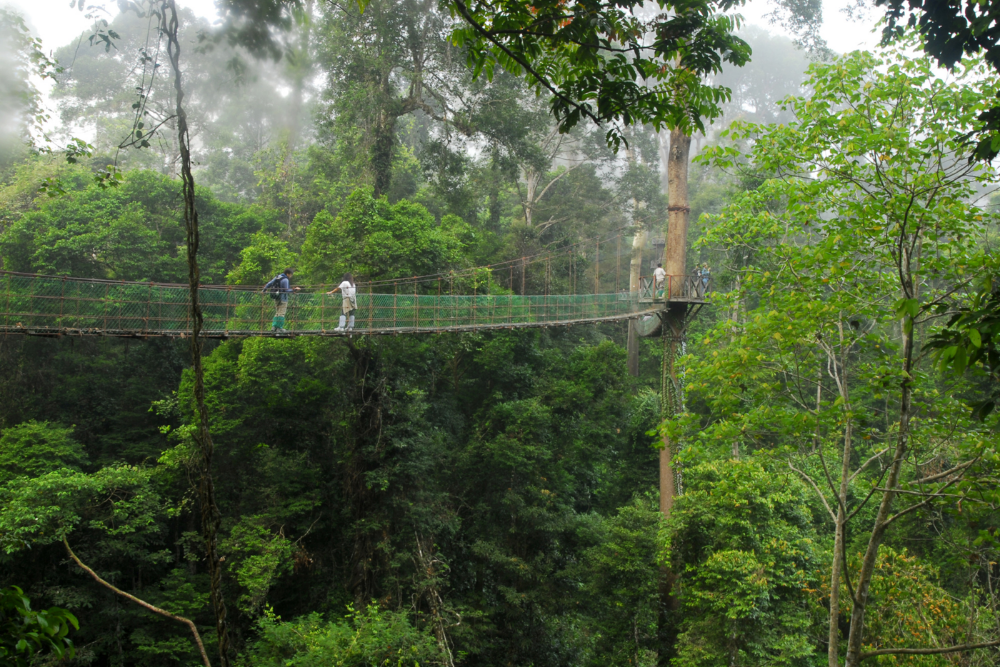Borneo, the world’s third-largest island, is home to some of the most incredible wildlife on Earth. Among its many treasures, the orangutan stands out as one of the most iconic and endearing species. The island is home to both the Bornean orangutan and the Sumatran orangutan, both of which are critically endangered due to habitat loss, poaching, and illegal pet trade. For travelers looking to experience these majestic creatures in their natural habitat, Borneo offers numerous opportunities—but it’s essential to approach this experience ethically to ensure the protection and conservation of orangutans and their environment. Here’s a guide on how to responsibly and ethically observe orangutans in Borneo.
1. Visit Ethical Sanctuaries and Rehabilitation Centers
One of the best ways to experience orangutans in Borneo is to visit ethical sanctuaries and rehabilitation centers that are dedicated to rescuing, rehabilitating, and releasing orangutans back into the wild. These centers are not only educational but are vital in orangutan conservation.
Recommended Ethical Sanctuaries:
- Sepilok Orangutan Rehabilitation Centre (Sabah): Located in Sabah, the Sepilok Orangutan Rehabilitation Centre is one of the most famous and responsible places to observe orangutans. The center rehabilitates orphaned, injured, or displaced orangutans and prepares them for a life back in the wild. Visitors can watch orangutans during feeding sessions at the center’s viewing platforms, and learn about the ongoing efforts to protect these endangered primates.
- Bornean Sun Bear Conservation Centre (Sabah): Located near Sepilok, this center focuses on the protection of the Bornean sun bear, but it also works in tandem with the orangutan rehabilitation efforts. Many ethical wildlife tourism packages in Borneo include visits to both these centers, ensuring a holistic approach to conservation.
- Maliau Basin Conservation Area (Sabah): Often referred to as the “Lost World,” this remote conservation area offers opportunities for ethically guided treks where you might be lucky enough to spot wild orangutans in their natural habitat. The experience here is more about immersing yourself in the wilderness while supporting local conservation initiatives.
Why It’s Ethical:
These centers provide crucial care to orangutans that are victims of human activity, offering them a safe haven without human interference. Importantly, the orangutans are not kept in captivity for entertainment. Visitors are not encouraged to touch or feed the animals, which reduces the risk of human-orangutan conflict and ensures that orangutans do not lose their natural behaviors.
2. Participate in Ethical Wildlife Tours with Local Guides
While many parts of Borneo offer the chance to see orangutans in the wild, it’s vital to choose responsible wildlife tours that prioritize conservation and respect for the animals’ natural environment.
Best Ethical Wildlife Tours:
- Danum Valley Conservation Area (Sabah): Located deep in the rainforest, Danum Valley is one of the best places in Borneo to see wild orangutans. The area is protected, and only eco-friendly, small-scale tours are permitted. Most tours are guided by locals who are well-versed in both conservation and the habits of the orangutans. These tours ensure that any interactions with orangutans are minimal and respectful, with a focus on observing the animals in their natural habitat.
- Kinabatangan River (Sabah): A river cruise along the Kinabatangan River can provide opportunities to spot orangutans swinging from trees along the riverbanks. Ethical tour operators in the area adhere to guidelines that ensure the safety and well-being of the wildlife. These cruises typically include experienced naturalists and wildlife guides who can explain how to observe orangutans respectfully, without disturbing their natural routines.
Why It’s Ethical:
Ethical wildlife tours in Borneo aim to minimize environmental impact and avoid intruding on the animals’ natural behaviors. These tours are typically conducted by local guides who prioritize conservation education and emphasize the importance of maintaining distance from the animals.
3. Support Responsible Eco-Lodges and Resorts
To further ensure that your trip is both ethical and sustainable, consider staying at eco-lodges and resorts that support conservation efforts and adhere to sustainable practices. These accommodations often work closely with local communities and conservation organizations to protect the habitats of orangutans and other wildlife.
Recommended Eco-Lodges and Resorts:
- Borneo Rainforest Lodge (Danum Valley): This eco-lodge is located in one of Borneo’s most pristine rainforests. The lodge practices sustainable tourism, and a percentage of its profits go toward local conservation efforts, including orangutan protection.
- The Sukau Rainforest Lodge (Kinabatangan River): This lodge is committed to responsible tourism and eco-friendly practices. The lodge offers guided tours of the Kinabatangan River, where guests can observe orangutans and other wildlife in a way that minimizes environmental impact.
Why It’s Ethical:
These eco-lodges provide jobs for local communities, support sustainable development, and give back to conservation efforts. They also operate in harmony with nature, allowing guests to experience Borneo’s wildlife without harming the environment or its inhabitants.
4. Avoid Facilities that Exploit Orangutans
When planning your trip, it’s crucial to steer clear of unethical experiences that exploit orangutans for entertainment. Unfortunately, there are still places in Borneo where orangutans are kept in captivity or used for photo opportunities, sometimes in ways that can harm their welfare.
What to Avoid:
- Orangutan shows or performances: Any facility that offers staged performances where orangutans are made to do tricks or interact closely with visitors is not ethical. These practices can be harmful to the animals’ physical and mental health.
- Orangutan petting: Never visit any establishment that allows you to touch or feed orangutans. This can cause stress to the animals and damage their social behaviors, making it harder for them to survive in the wild.
Why It’s Harmful:
Orangutans are intelligent, sensitive creatures that thrive in their natural environment. Interacting with humans too closely can lead to stress, behavioral problems, and even the transmission of diseases between humans and primates. Such interactions also contribute to the larger issue of the illegal pet trade, which threatens the survival of orangutans in the wild.
5. Be a Responsible Traveler
As a traveler, you play a key role in supporting ethical tourism and protecting the environment. Here are a few additional tips for ensuring that your visit to Borneo supports orangutan conservation:
- Respect Wildlife Guidelines: Always maintain a safe distance from orangutans and refrain from using flash photography, which can disturb them.
- Don’t Buy Orangutan-related Souvenirs: Avoid purchasing items made from orangutans or their habitats, such as pet products, jewelry, or artwork that may be linked to illegal wildlife trade.
- Offset Your Carbon Footprint: Consider supporting initiatives that help offset the environmental impact of your travel, such as contributing to conservation funds or reducing your carbon footprint through eco-friendly transportation options.
Conclusion: Experience Orangutans Respectfully and Responsibly
Borneo offers some of the world’s best opportunities to observe orangutans in their natural environment, but it’s essential to approach this experience with care and respect. By supporting ethical wildlife tours, visiting responsible sanctuaries and conservation centers, and being mindful of your impact, you can help ensure that these magnificent creatures continue to thrive in the wild. Remember, every responsible traveler can play a part in the protection of orangutans and the preservation of their fragile habitats for generations to come.












